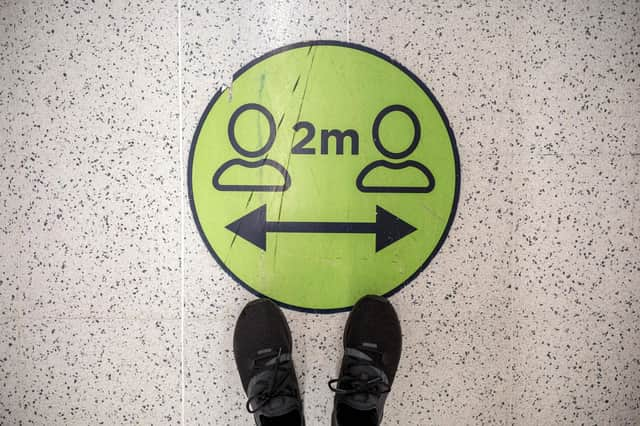Prioritising the mental fitness of your employees - comment


The global working landscape has changed, possibly forever. Businesses have undoubtedly been facing unprecedented challenges during lockdown, as have employees, and there has never been a better time to understand the mind of your organisation. Are employees mentally fit to return to work?
Remote working will likely become a permanent feature for all organisations in some form, signalling a permanent shift in the way we work. The change to our day-to-day working lives will be substantial. Amongst many things, a heavily reliance on technology, remote working tools, broadband speeds, and physical space requirements.
Advertisement
Hide AdAdvertisement
Hide AdAll of which come with a wide range of challenges that can be particularly problematic. For example, how do organisations respond to the difficulty placed on staff who do not have adequate space or technology at home? This poses not just an issue of physical location but a socio-economic one.
Parents have also been in particularly tricky circumstances during these past few months, forced to choose between schooling children and work responsibilities, whilst coping with extra pressure from employers expecting business as usual. There is frustration and resentment building from the expectation that staff can do a full day’s work while providing childcare.
For those where homeworking is not possible, there is a completely different set of challenges, including the heightened fear of contracting Covid-19 whilst carrying out their work duties or even the daily commute.
This period of lockdown inevitably has different impacts on different people. Mental health charities and other professional bodies have already predicted a mental health crisis, and employers need to act now.
Some of the individually faced issues that must be considered include grief from the sudden loss of loved ones and the impact of long-term isolation, especially from shielding or those required to self-isolate.
For some, the lack of personal grooming will impact self-esteem and for many, financial concerns will be front of mind either having slipped through the cracks in government support, being made redundant or living on furlough wages.
Others will be dealing with new or exacerbated issues as result of living in prolonged close contact with their partner and children including domestic abuse, alcohol and substance misuse. Furthermore, with a global recession looming, the threat of job loss continues to be real for every organisation and individual.
These issues are unsurprisingly causing acute levels of stress and an increase in anxiety, all adding to the risk of individuals developing a more serious mental illness such as depression. It is also crucial to consider post-traumatic stress disorder in survivors of this particularly distressing illness.
Struggles
Advertisement
Hide AdAdvertisement
Hide AdMental fitness enables people to overcome life’s most difficult challenges. But, when the mind is not functioning as it should, everyday activities start to feel impossible.
Combining this with work can have serious consequences if ignored, both for individuals and businesses. Absenteeism, high staff turnover, low productivity, and missed opportunities are just some of the risks and hidden costs facing an organisation whose employees are struggling in silence.
From an organisational perspective, leadership teams must educate themselves on the reality of mental health difficulties returning employees could be facing, and the impact these could have on the business.
Creating a vision for mental fitness must reflect the belief system of an organisation and everyone within it. Engaging with the workforce, having an inclusive and open dialogue about issues, as well as individual assessment, is essential.
Organisations need to understand where the mental health of their staff is at and take steps to make mental fitness a priority. Not a project, not a one-off, but a proactive, consistent, and effective response to overall health at work.
Any plan should encompass both tactical and strategic solutions to individual and organisation-wide issues, including consideration of resource restrictions and existing organisational demands.
Leaders and employees who have improved mental fitness engage productively with their teams and their environment, manage relationships positively, feel fulfilled, motivated, and optimistic, staying happier at work and taking less time off sick. So, taking a proactive and inclusive approach to ensuring employees are mentally fit to return to work simply makes good business sense.
A message from the Editor:
Thank you for reading this story on our website. While I have your attention, I also have an important request to make of you.
Advertisement
Hide AdAdvertisement
Hide AdThe dramatic events of 2020 are having a major impact on many of our advertisers - and consequently the revenue we receive. We are now more reliant than ever on you taking out a digital subscription to support our journalism.
Subscribe to scotsman.com and enjoy unlimited access to Scottish news and information online and on our app. Visit https://www.scotsman.com/subscriptions now to sign up. By supporting us, we are able to support you in providing trusted, fact-checked content for this website.
Joy Yates
Editorial Director
Comments
Want to join the conversation? Please or to comment on this article.